
This book shows us that the way to master complexity is through insight rather than precision. Precision can overwhelm us with information, whereas insight connects seemingly disparate pieces of information into a simple picture. Unlike computers, humans depend on insight. Based on the author's fifteen years of teaching at MIT, Cambridge Unive...
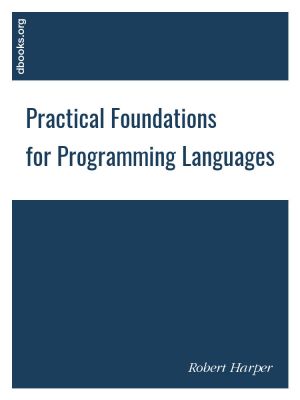
Types are the central organizing principle of the theory of programming languages. Language features are manifestations of type structure. The syntax of a language is governed by the constructs that define its types, and its semantics is determined by the interactions among those constructs. The soundness of a language design - the absence of ill-d...
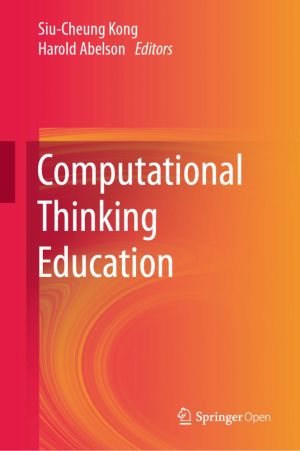
This book offers a comprehensive guide, covering every important aspect of computational thinking education. It provides an in-depth discussion of computational thinking, including the notion of perceiving computational thinking practices as ways of mapping models from the abstraction of data and process structures to natural phenomena. Further, it...
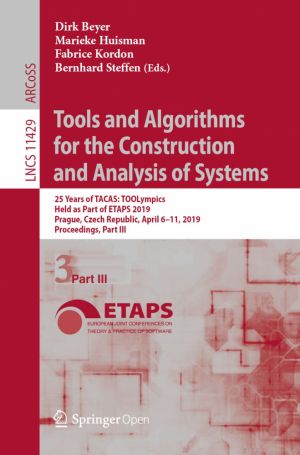
This book constitutes the refereed proceedings of the 7th International Conference on Tools and Algorithms for the Construction and Analysis of Systems, TACAS 2001. The 36 revised full papers presented together with an invited contribution were carefully reviewed and selected from a total of 125 submissions. The papers are organized in sections on ...
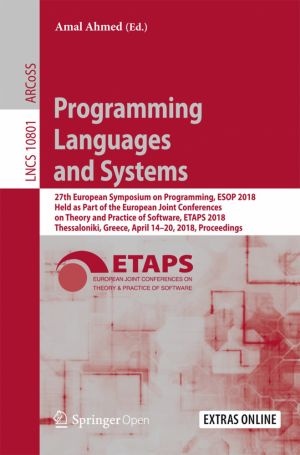
This book constitutes the proceedings of the 27th European Symposium on Programming, ESOP 2018, which took place in Thessaloniki, Greece in April 2018, held as Part of the European Joint Conferences on Theory and Practice of Software, ETAPS 2018.
The 36 papers presented in this volume were carefully reviewed and selected from 114 submissions. The ...
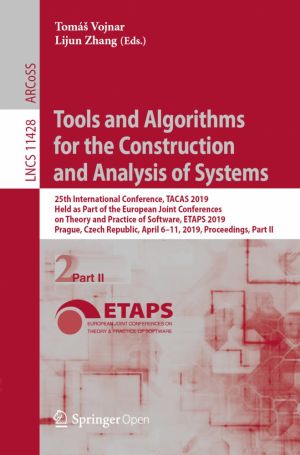
The LNCS 11427 and 11428 proceedings set constitutes the proceedings of the 25th International Conference on Tools and Algorithms for the Construction and Analysis of Systems, TACAS 2019, which took place in Prague, Czech Republic, in April 2019, held as part of the European Joint Conferences on Theory and Practice of Software, ETAPS 2019.
The tot...
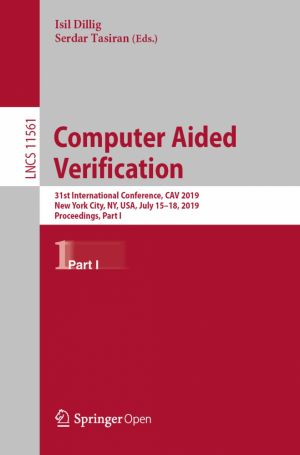
The book set LNCS 11561 and 11562 constitutes the refereed proceedings of the 31st International Conference on Computer Aided Verification, CAV 2019, held in New York City, USA, in July 2019. The 52 full papers presented together with 13 tool papers and 2 case studies, were carefully reviewed and selected from 258 submissions. The papers were organ...

This book surveys the frontier of scientific river research and provides examples to guide management towards a sustainable future of riverine ecosystems. Principal structures and functions of the biogeosphere of rivers are explained; key threats are identified, and effective solutions for restoration and mitigation are provided. Rivers are among ...
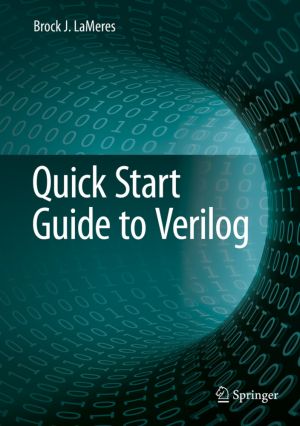
This book provides a starter's guide to Verilog, to be used in conjunction with a one-semester course in Digital Systems Design, or on its own for readers who only need an introduction to the language. This book is designed to match the way the material is actually taught in the classroom. Topics are presented in a manner which builds foundati...

This book develops the essential tools of linear algebra, with the goal of imparting technique alongside contextual understanding. Applications go hand-in-hand with theory, each reinforcing and explaining the other. This approach encourages students to develop not only the technical proficiency needed to go on to further study, but an appreciation ...
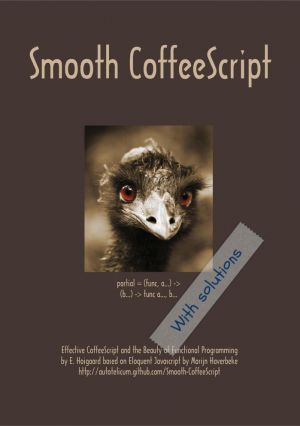
An introduction to CoffeeScript programming with an emphasis on clarity, abstraction and verification.
Smooth CoffeeScript is a free book about CoffeeScript and programming. No previous programming knowledge is required. Over 200 pages and 35 exercises....
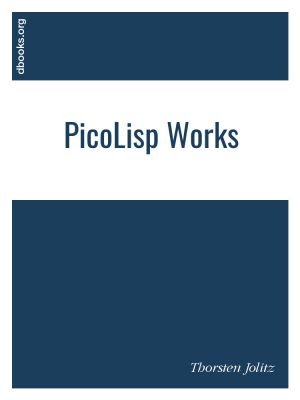
PicoLisp Works is a compilation of (almost) all available information about the technological gem PicoLisp - a programming language and environment that definitely deserves wider attention.
Built on the unique characteristics of Lisp (almost no syntax, code is equivalent to data), PicoLisp combines powerful abstractions with simplicity and purit...

Making up Numbers: A History of Invention in Mathematics offers a detailed but accessible account of a wide range of mathematical ideas. Starting with elementary concepts, it leads the reader towards aspects of current mathematical research.
The book explains how conceptual hurdles in the development of numbers and number systems were overcome i...
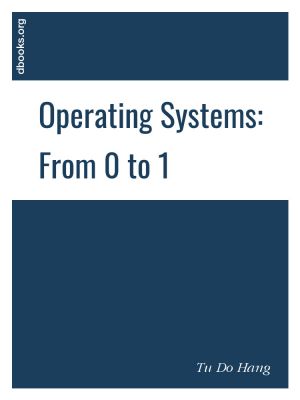
This book helps you gain the foundational knowledge required to write an operating system from scratch. Hence the title, 0 to 1.
After completing this book, at the very least you will learn:
- How to write an operating system from scratch by reading hardware datasheets. In the real world, it works like that. You won't be able to consult Go...
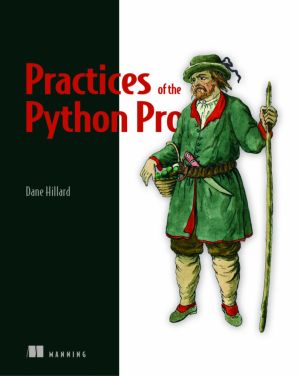
Professional developers know the many benefits of writing application code that's clean, well-organized, and easy to maintain. By learning and following established patterns and best practices, you can take your code and your career to a new level.
With Practices of the Python Pro, you'll learn to design professional-level, clean, easi...
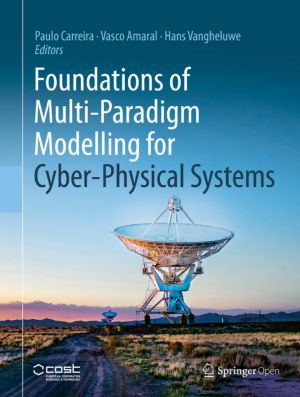
This open book coherently gathers well-founded information on the fundamentals of and formalisms for modelling cyber-physical systems (CPS). Highlighting the cross-disciplinary nature of CPS modelling, it also serves as a bridge for anyone entering CPS from related areas of computer science or engineering.Truly complex, engineered systems - known a...

This book integrates the vital areas of object-orientation, functional programming, design patterns, and language design. The most important concepts from functional programming are captured with six design patterns: FUNCTION OBJECTS (Black-box behaviour parameterisation) LAZY OBJECTS (Evaluation-by-need semantics) VALUE OBJECTS (Immutable values) ...
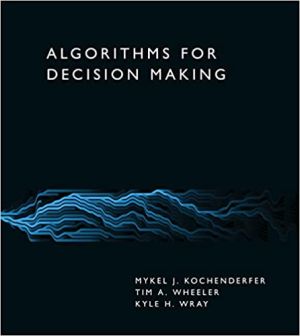
A broad introduction to algorithms for decision making under uncertainty, introducing the underlying mathematical problem formulations and the algorithms for solving them.
Automated decision-making systems or decision-support systems - used in applications that range from aircraft collision avoidance to breast cancer screening - must be designed...
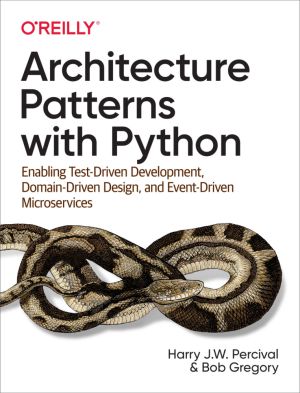
As Python continues to grow in popularity, projects are becoming larger and more complex. Many Python developers are taking an interest in high-level software design patterns such as hexagonal/clean architecture, event-driven architecture, and the strategic patterns prescribed by domain-driven design (DDD). But translating those patterns into Pytho...
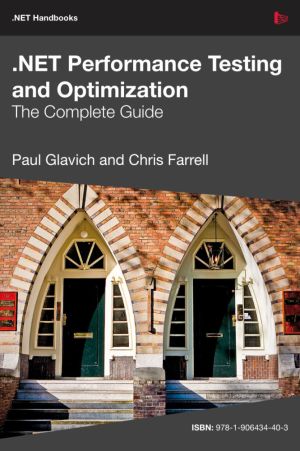
As we develop the applications to meet current and future needs, it is only natural to use current best practices and techniques for our designs and implementations. In the quest to improve how we develop, we can access a true wealth of information which is available on design patterns, object-oriented analysis, low-level code techniques and langua...
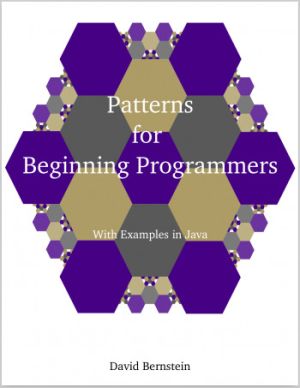
Programming patterns are solutions to problems that require the creation of a small fragment of code that will be part of a larger program. Hence, this book is about teaching you how to write such fragments of code. However, it is not about teaching you the syntax of the statements in the fragments, it assumes that you already know the syntax. Inst...
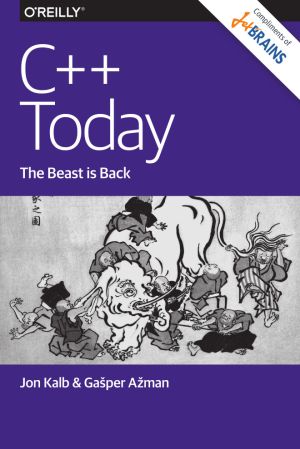
Now that software development is shifting primarily toward mobile and cloud computing, the venerable C++ programming language is returning to the dominant position it held during the object-oriented boom of the 1990s. In this O'Reilly report, you'll learn why C++ is once again the preferred choice across several diverse industries, after ...

This book is an introduction to the language of systems biology, which is spoken among many disciplines, from biology to engineering. Authors Thomas Sauter and Marco Albrecht draw on a multidisciplinary background and evidence-based learning to facilitate the understanding of biochemical networks, metabolic modeling and system dynamics.
Their pe...

This book is an introduction to the language of systems biology, which is spoken among many disciplines, from biology to engineering. Authors Thomas Sauter and Marco Albrecht draw on a multidisciplinary background and evidence-based learning to facilitate the understanding of biochemical networks, metabolic modeling and system dynamics.
Their pe...
